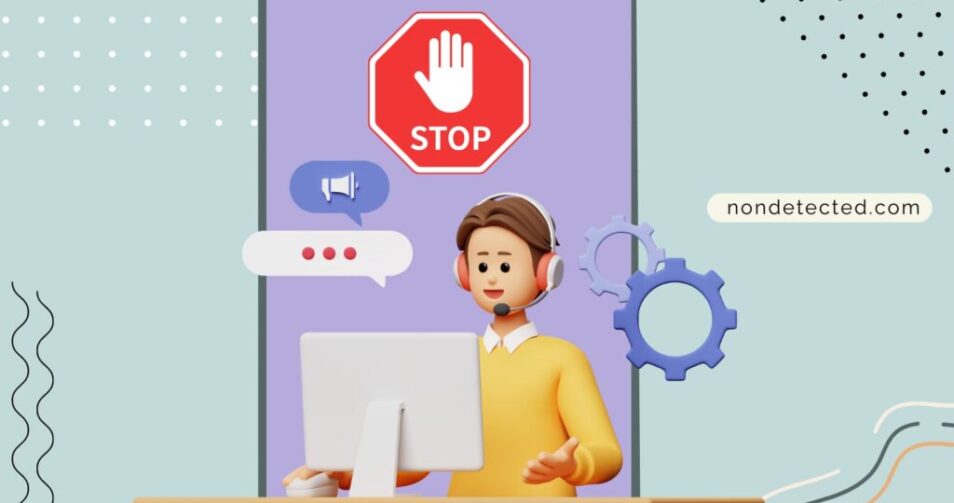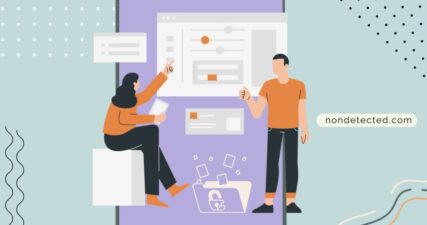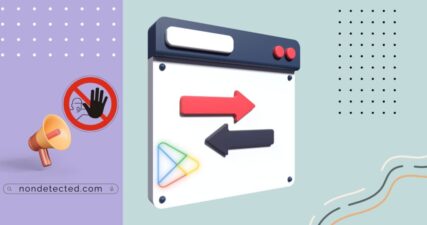How to Stop Data Brokers from Collecting Your Personal Information?

In the vast digital landscape of the 21st century, the rise and dominance of data brokers have become a topic of paramount importance. These entities, often operating behind the scenes, play a pivotal role in the data broker websites, collecting, storing, and often monetizing personal information from unsuspecting individuals.
As someone deeply involved in online reputation management, I’ve witnessed firsthand the intricate web these data broker sites weave, and the profound implications they have on our digital footprints.
Understanding the mechanics of how data brokers collect, use, and distribute personal data is not just a matter of curiosity; it’s a necessity for anyone wishing to maintain their online privacy.
With the increasing prevalence of data collection and the growing influence of the data brokerage industry, it’s essential to be proactive, informed, and equipped with the right tools and knowledge.
The challenges posed by data brokers might seem daunting, but with the right strategies, it’s entirely possible to regain control over your personal information, ensuring it remains private and secure.
In this guide, drawing from my extensive experience and insights from the best experts in the niche, I aim to shed light on the world of data brokers, offering actionable steps to protect your digital identity.
The Risks of Data Brokers
Let me start by focusing on the most common issues related to data brokers. Yes, everyone should understand the risks connected with public and private data and consumer data breaches and leaks.
Privacy Concerns and Misuse of Personal Data
In my years of experience and countless discussions with top experts in the field, one thing has become abundantly clear: most data brokers are looming giants when it comes to privacy threats.
Picture this: you sign up for an online service, thinking it’s harmless. Unbeknownst to you, the details you’ve just entered are being harvested by data brokers.
These brokers, often operating in the shadows, amass a wealth of personal information. And what’s more alarming? Most of the time, individuals have no clue that their data is being collected.
Now, here’s where it gets even more concerning. This collected data doesn’t just sit idle. It’s a goldmine, and it’s actively traded, sold, or licensed to third parties.
For instance, I’ve heard of scenarios where someone’s email and mailing address has, initially picked up by a data broker, ended up in the hands of aggressive marketers, leading to an onslaught of unsolicited emails. Why? Because data brokers sell business and consumer data.
You can check my other article to understand how data brokers collect information from people.
Realizing how extensively data brokers collect your personal details can feel overwhelming—especially if you’re seeing it appear across multiple sites. Some companies offer assistance removing these records from public directories and broker databases, helping reclaim control over your information without having to tackle every platform manually.
Now, let me provide you with some real cases so you get a better understanding of how the process works.
Real-World Implications
The ramifications of data brokers’ activities aren’t just limited to a cluttered inbox. The stakes are much higher.
Take this case, the personal information of a person, sold by a data broker, ended up with a scammer. She was subsequently targeted with a scam that seemed eerily personalized, leading her to believe its authenticity.
The result? A significant financial loss and a bruised sense of security.
But it doesn’t end there. In another instance, a person has another issue with data broker website. His personal and financial data was exposed online, leading to identity theft. He spent months, if not years, untangling the mess, restoring his credit score, and reclaiming his identity.
These are not isolated incidents. They underscore the very real dangers posed by the unchecked activities of online data brokers.
Data Brokers vs. Consumer Reporting Agencies
In the world of data collection, it’s crucial to understand the players. Many people often conflate data brokers with consumer reporting agencies, but they serve distinct roles.
Consumer reporting agencies, like Equifax or Experian, are regulated bodies. They primarily focus on gathering financial data to provide reputation scores, credit scores and reports, aiding the credit card companies in decisions like loan approvals.
On the other hand, data brokers are a different beast altogether. They operate in a vast, often murky realm, collecting many personal information. This can range from your shopping habits to your favorite vacation spots.
And unlike consumer reporting agencies, they’re not bound by the same stringent regulations. This lack of oversight makes their operations unpredictable, and in many cases, perilous for the average individual.
In essence, while both entities deal with data, the ways they operate, their objectives, and the potential risks they pose are worlds apart. It’s like comparing apples to oranges, and understanding this distinction is the first step in safeguarding one’s data privacy.
Steps to Remove Yourself from Data Broker Sites

I guess this is the block most of you have been waiting for. So, no more words, let’s get right to the main topic. How to opt out of data brokers websites?
The Manual Data Brokers Opt Out
I’ve come to realize that knowledge truly is power. And when it comes to data brokers, understanding the manual opt-out process is a pivotal first step.
Let me paint a picture for you: Imagine you’ve discovered your personal details on a data broker site. Naturally, you’d want to remove them. Most of these sites, in theory, offer an opt-out option. But here’s the catch: it’s often hidden, tucked away in the labyrinth of their terms of service or buried in a maze of FAQs.
I remember when one person we worked with found his details on such a site. He had to sift through pages of dense text before finally stumbling upon the opt-out procedure. And even then, the process was convoluted, requiring multiple verification steps and weeks of waiting.
It’s a deliberate hurdle, designed to deter individuals from protecting their data. While it’s a necessary step, it’s undeniably tedious and can test one’s patience.
Tools to the Rescue
Transitioning from the manual process, there’s a silver lining. The digital age has brought forth a range of automated tools designed to combat the data broker menace, also called a data broker removal service.
These tools are designed to do the heavy lifting for you. Instead of individually opting out from multiple data collection sites, by sending numerous data removal requests, these platforms consolidate the process, targeting several data broker sites at once.
Even after a data broker removes your record, it may still appear in Google search results or cached pages for a while. At that point, services are available to request removal of those outdated links from Google search listings—ensuring your name and details aren’t easily discoverable.
Continuous Monitoring
But here’s a reality check: The world of data brokerage isn’t static. It’s dynamic, ever-shifting, and always expanding. Today’s safe haven might be tomorrow’s data breach epicenter.
New data broker sites spring up, while existing ones continually update their databases. This fluidity means that even if you’ve successfully opted out today, your data might resurface tomorrow.
I remember an instance where a friend, after diligently opting out from several data broker sites, found his details on a newly launched site just a few months later. It was a stark reminder that in this game, vigilance is key.
Regularly monitoring these sites, being alert to new entrants, and being ready to send repeat removal requests is not just advisable; it’s essential.
The battle for privacy is ongoing, but with the right tools and mindset, it’s one we can guide successfully.
Extra Steps —> Educating Yourself
In my years of working with online reputation management, one thing has stood out: the more you know, the better equipped you are. The data broker ecosystem is vast and varied. Some data brokers are transparent about their practices, while others operate in the shadows.
By taking the time to educate yourself about the major players in the data broker industry, their methods of data collection, and their primary sources, you arm yourself with the knowledge to make informed decisions.
I can share a case when a client approached me, distressed about her personal information being available on a particular data broker site. Through our discussions, we realized that the source of her data leak was an innocuous-looking survey she had filled out a year ago.
Had she known the connections between such surveys and data brokers, she might have thought twice before sharing her details.
Your Legal Rights in the Fight for Privacy
One of the most potent tools in our arsenal against data brokers is the law. Over the past few years, there’s been a growing recognition of the threats posed by unchecked data collection. This has led to the formulation of data protection regulations in various jurisdictions.
For instance, the California Consumer Privacy Act (CCPA) grants Californians the right to know what personal data is being collected about them and the right to deny the sale of their personal information.
As one of the ways far data removal, we also utilize these legal provisions to challenge a data broker unwilling to remove personal information. But the issue is that it’s mostly applicable in the US. When you work with other countries, you should use other Data Protection laws for example – General Data Protection Regulation mostly known as GDPR.
Understanding and leveraging these legal rights can be a game-changer. It’s not just about removing your data; it’s about holding these brokers accountable and ensuring they think twice before mishandling personal information.
Beyond Data Broker Industry

In the online reputation world, there are way more things besides collecting personal data from broker sites. If you want to remove your data from the web, consider other moments as well.
Minimizing Your Digital Footprint
If there’s one piece of advice I consistently emphasize, it’s the importance of minimizing one’s digital footprint. Think of it as leaving fewer trails in the vast expanse of the internet.
Start with the basics: those old accounts on websites you no longer visit? It’s time to delete them. That forum where you shared personal anecdotes years ago? Revisit and consider editing or removing posts.
And when it comes to search engines, periodically check what information about you is accessible and work on having any unnecessary details removed.
I remember assisting a client who was surprised at how much of her personal information was scattered across the web. By methodically reducing her digital footprint, we not only enhanced her online privacy but also gave her a renewed sense of control over her personal narrative.
And yes, such situation is super common, so if you are feeling frustrated wth data leaks, you know where to go.
Harnessing Advanced Online Privacy Tools
In today’s tech-driven world, merely being cautious isn’t enough. We need to be proactive, and that’s where advanced online privacy tools come into play.
VPNs (virtual private network), for instance, mask your online activities, making it harder for prying eyes to track your movements.
Password managers, on the other hand, ensure that your passwords are not just strong but also unique for every site, reducing the risk of a security breach.
Another tool that I often advocate for is two-factor authentication. It’s like having a second lock on your door. Even if someone guesses your password, they’d need another piece of information, like a code sent to your phone, to access your account.
It’s a simple yet effective layer of protection that I’ve seen thwart countless unauthorized access attempts.
Recognizing and Warding Off Phishing Scams
The digital landscape, while filled with opportunities, is also rife with threats. Among the most insidious are phishing scams. These are craftily designed traps, aiming to lure individuals into divulging sensitive information.
The email that looks like it’s from your bank, the message that eerily resembles a notification from a trusted service, or the website that’s a spitting image of a popular platform – they’re all potential phishing threats.
A friend of mine once shared a harrowing tale of almost falling for such a scam. An email, seemingly from his credit card company, alerted him to suspicious activity. It looked legitimate, but a closer inspection revealed slight inconsistencies in the logo and email address. His vigilance saved him from a potential disaster.
The lesson here? Always be skeptical, double-check sources, and never share sensitive data unless you’re absolutely certain of the recipient’s authenticity.
Need Assistance with Information Removal? We’ve Got Your Back!
Feeling overwhelmed or unsure about the complexities of data brokers? Don’t fret. At NonDetected, we’re experts in online reputation management and are ready to assist you.
Whether it’s guiding you through the opt-out process, helping reduce your digital footprint, or providing tools to enhance your online privacy, we’re here every step of the way.
Some data brokers or aggregated sites display profile pictures, photo IDs, or scanned documents that are searchable in Google Images. If those visuals are still showing up—even after the primary site is taken down—there are services that can help remove them from image search results as well.
Reach out to us, and let’s work together to ensure your personal information stays exactly where it should be – with you.
Conclusion
The digital realm we live in is intricate and ever-evolving. The presence of data brokers and the challenges of online privacy can sometimes feel overwhelming. But remember, with the right strategies and a proactive approach, you can reclaim and protect your personal information.
The data broker niche, driven by its relentless hunger for consumer data, isn’t slowing down. However, staying informed and taking decisive actions can ensure your personal data remains secure and private.
It’s a dynamic world out there, but with determination and the right resources, you can confidently protect your digital identity.


